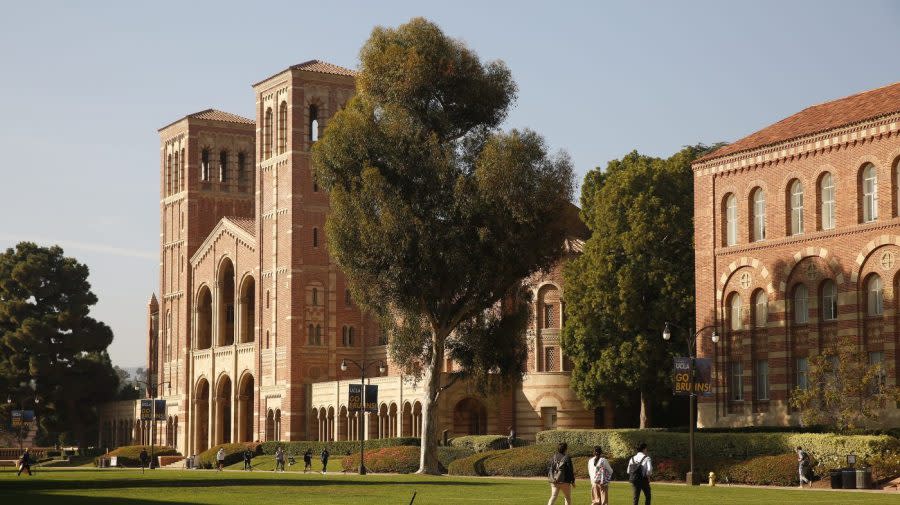UCLA to lead first federal research center focused on building heat-resilient communities

The University of California, Los Angeles (UCLA) will be establishing the first federal research center focused on bolstering community resilience to local heat impacts, the institution announced Monday.
The Center of Excellence for Heat Resilient Communities, housed at the university’s Luskin Center for Innovation, is receiving a $2.25 million grant from the National Oceanic and Atmospheric Administration’s (NOAA) National Integrated Heat Health Information System.
The new Los Angeles-based center, which will be operated with Arizona State University, is part of a broader, community heat-related $4.55 million financing effort from the Inflation Reduction Act.
While the Los Angeles site will focus on engaging with communities to develop heat management strategies, the remaining $2.3 million share will fund a North Carolina-based collaboration focused on heat-related data collection, according to NOAA.
“Some communities have begun to plan for heat, but most lack the capacity or resources to engage in comprehensive planning,” V. Kelly Turner, head of the Luskin Center for Innovation’s heat equity research program, said in a statement.
“With this grant, we can help the federal government establish a robust, actionable and durable plan to support those efforts,” Turner added.
As part of the Los Angeles-based endeavor, 30 communities and tribal entities will be chosen for direct technical assistance and educational support during the three-year grant period, a press release from the university stated.
Researchers will be working with more than 50 other partner institutions to identify and evaluate policies and lessons for heat resilience that could be applied nationwide, per the university.
The complementary Center for Collaborative Heat Monitoring, led by the Museum of Life and Science in Durham, N.C., will be helping community organizations to conduct scientific observations and evaluate heat risk, according to NOAA.
“The impacts of extreme heat caused by climate change are an increasing threat to our health, ecosystems and economy,” Secretary of Commerce Gina Raimondo said in a statement.
The investments, Raimondo added, will “help protect historically excluded communities from the dangers of extreme heat, boost climate resilience and increase awareness on best practices to tackle the climate crisis.”
For the latest news, weather, sports, and streaming video, head to The Hill.


